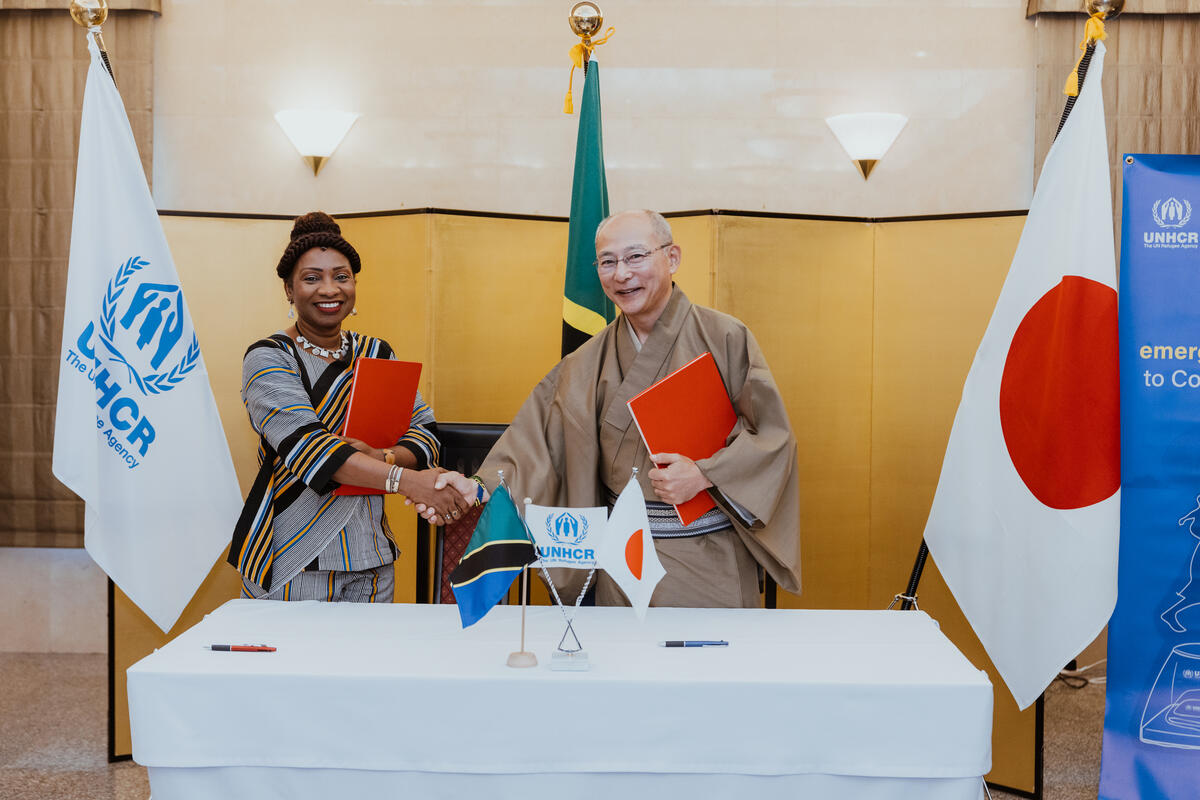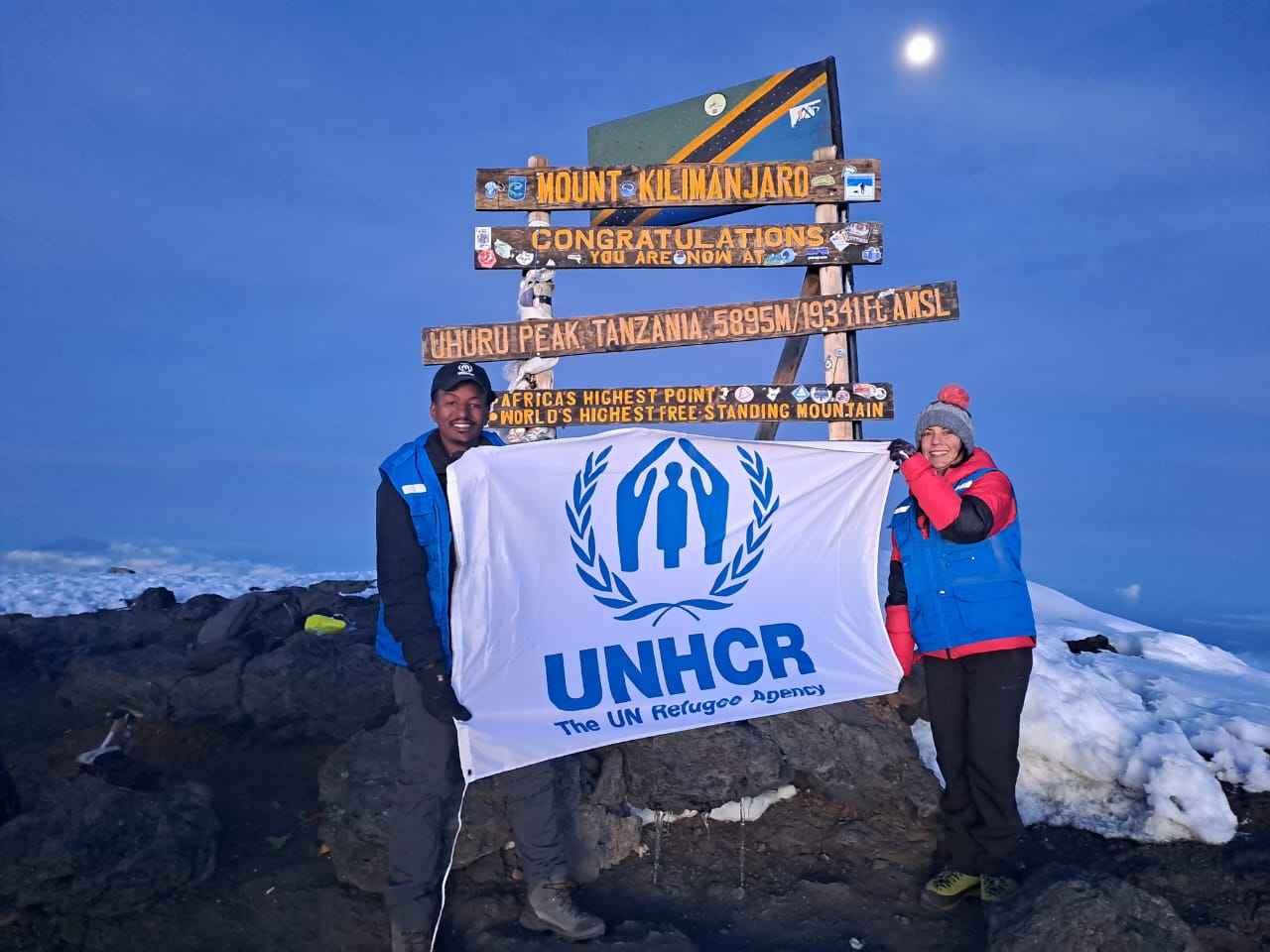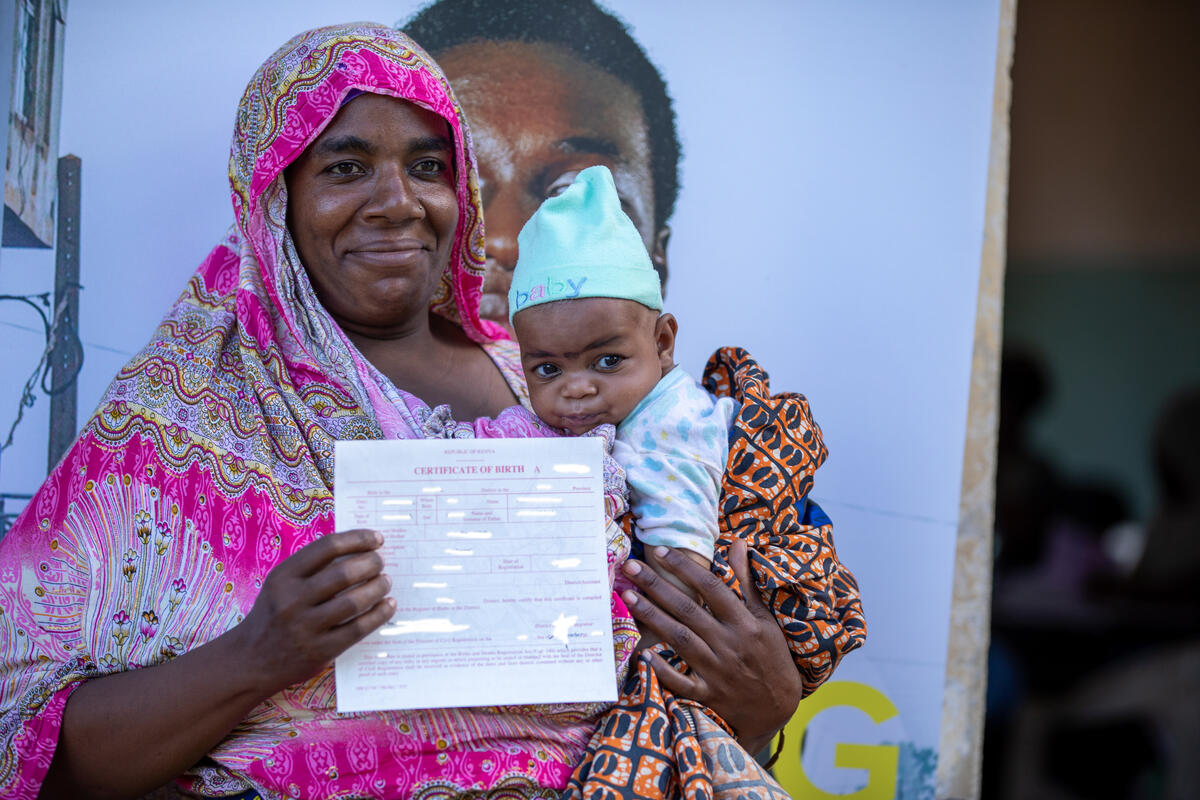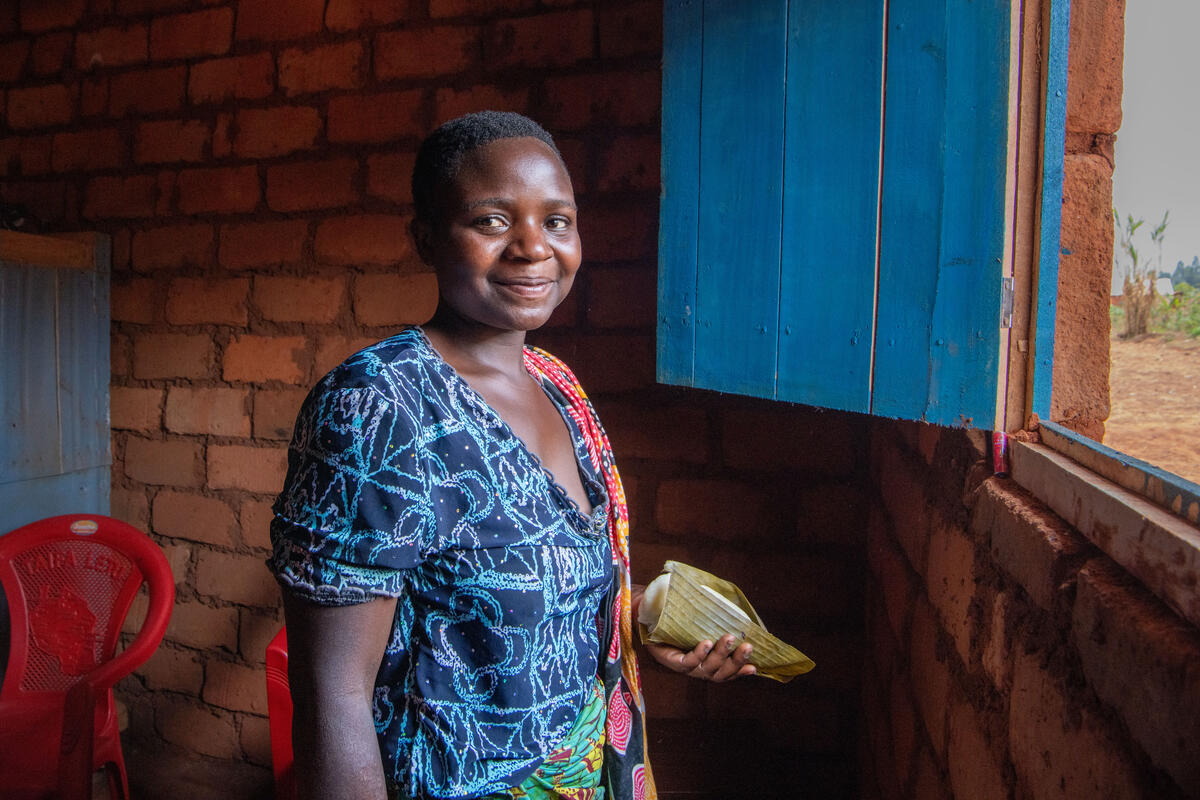Opportunities to earn a living vital for Burundian refugees in Tanzania

Opportunities to earn a living vital for Burundian refugees in Tanzania
MTENDELI, Tanzania - Faustin, 34, longs for the idyllic life he enjoyed back home in Burundi. A successful farmer, he grew fruits and vegetables which he sold to sustain his wife and three children. But at the height of the Burundi crisis in 2015, he was forced to leave everything behind and seek safety across the border in Tanzania with his family.
“I lost my mother and sister, my house and my source of income,” he says solemnly.
Now living in Mtendeli camp in Northwest Tanzania’s Kigoma region, he struggles to make ends meet.
“I want to return home in the future when the situation stabilizes because it is difficult to live here in the refugee camp with my family,” he says. “We refugees want to work and keep our dignity but there are no opportunities to get any jobs.”
Faustin’s situation is not unique; the threat of lost livelihoods and the seemingly endless cycle of dependence are very real for thousands of Burundian refugees like him. These are challenges that refugees face daily in Tanzania’s camps and the situation worsens as more people are forced to flee multiple times with each displacement lasting over three years.
“We refugees want to work and keep our dignity but there are no opportunities to get any jobs.”
UNHCR, the UN Refugee Agency, has noted with concern the increasing number of able refugees living in camps with limited livelihood opportunities. Faced with a refugee crisis that is no longer temporary, the need to address longer-term development needs that complement short-term humanitarian assistance is greater than ever.
“Displaced Burundians bring expertise, creativity, resources and an entrepreneurial spirit to host communities,” says Chansa Kapaya, UNHCR’s Representative in Tanzania. “Many refugees come with ready-to-use income generating skills in agriculture, bread-making, carpentry, tailoring and entrepreneurship.”
UNHCR, in collaboration with partner agencies has established various vocational training programmes in the three refugee camps in Tanzania, including Mtendeli. Refugees, both men and women, are enlisted in bread-making, tailoring, carpentry and business trainings. But the opportunities are limited.
Natalie is one of the beneficiaries of the tailoring training programme. She and her husband have had to escape thrice with their two children from their rural home near Burundi’s capital, Bujumbura to Tanzania. Regardless of the multiple escapes, Natalie hopes that one day she will return to Burundi and apply her newly obtained tailoring and bread-making skills to earn an income.
“This training provided me with a sense of direction,” she says, as she stands next to a sewing table in the training centre. “I want to return home one day so I can start a business and take my children to good schools.”
She is extremely lucky to be able to take part in the tailoring sessions as most refugees struggle to enroll in the coveted training spots.
“This training provided me with a sense of direction.”
The Government of Tanzania recently announced an encouraging development on refugees’ right to work, in line with its commitment to the Comprehensive Refugee Response Framework (CRRF). This is a testament to the continued commitment to the response as a new and sustainable path for providing humanitarian assistance for refugees and their host populations.
In this spirit, UNHCR together with partner agencies and donors, continues to advocate with the Government of Tanzania for expedited access to livelihood opportunities for refugees.
However, funding constraints continue to hamper efforts to provide critical humanitarian assistance including livelihood training programmes to develop refugee’s skills. The Burundian Refugee Situation in Tanzania is under-funded at only 20 per cent with a gap of 186.1 M.
“Providing access to livelihood opportunities in a range of sectors is where the humanitarian community can make a difference,” adds Chansa Kapaya, UNHCR’s Representative in Tanzania. “Beyond the financial benefits, this can also have important social and psychological benefits for refugees living among the host communities across refugee camps in Tanzania.”
“Providing access to livelihood opportunities in a range of sectors is where the humanitarian community can make a difference.”
If Tanzania gets more support to invest in vocational training and income-generating opportunities for refugees like Faustin, there will be huge benefits to be gained by both refugees and host communities.
“We just want the dignity that comes with being able to support our own families,” says Faustin. “If we are given that opportunity then we can enrich our host communities by bringing skills and ideas.”












